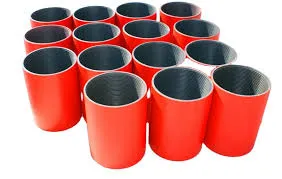- Afrikaans
- Albanian
- Amharic
- Arabic
- Armenian
- Azerbaijani
- Basque
- Belarusian
- Bengali
- Bosnian
- Bulgarian
- Catalan
- Cebuano
- Corsican
- Croatian
- Czech
- Danish
- Dutch
- English
- Esperanto
- Estonian
- Finnish
- French
- Frisian
- Galician
- Georgian
- German
- Greek
- Gujarati
- Haitian Creole
- hausa
- hawaiian
- Hebrew
- Hindi
- Miao
- Hungarian
- Icelandic
- igbo
- Indonesian
- irish
- Italian
- Japanese
- Javanese
- Kannada
- kazakh
- Khmer
- Rwandese
- Korean
- Kurdish
- Kyrgyz
- Lao
- Latin
- Latvian
- Lithuanian
- Luxembourgish
- Macedonian
- Malgashi
- Malay
- Malayalam
- Maltese
- Maori
- Marathi
- Mongolian
- Myanmar
- Nepali
- Norwegian
- Norwegian
- Occitan
- Pashto
- Persian
- Polish
- Portuguese
- Punjabi
- Romanian
- Russian
- Samoan
- Scottish Gaelic
- Serbian
- Sesotho
- Shona
- Sindhi
- Sinhala
- Slovak
- Slovenian
- Somali
- Spanish
- Sundanese
- Swahili
- Swedish
- Tagalog
- Tajik
- Tamil
- Tatar
- Telugu
- Thai
- Turkish
- Turkmen
- Ukrainian
- Urdu
- Uighur
- Uzbek
- Vietnamese
- Welsh
- Bantu
- Yiddish
- Yoruba
- Zulu
API 5CT Tubing Couplings for Reliable Oil and Gas Applications
API 5CT Tubing Coupling Essential Components for Oil and Gas Exploration
In the oil and gas industry, efficiency and reliability are paramount. One of the critical components that contribute to these aspects is the tubing coupling, specifically those that adhere to the specifications defined by the American Petroleum Institute (API) under the API 5CT standard. This standard provides the necessary specifications for the types of steel pipes used in the oil and gas sector, particularly for casing and tubing in well drilling.
Understanding API 5CT Standards
API 5CT is a specification for casing and tubing pipes used in the well construction of oil and gas industries. It ensures that the materials used for couplings and pipes can withstand the high pressures and corrosive environments often found underground. Tubing couplings are vital because they connect sections of tubing, which transports hydrocarbons from the reservoir to the surface while providing a robust barrier against formation pressures.
Material and Design Considerations
API 5CT tubing couplings are typically made from high-strength steel to ensure durability and reliability. The couplings are often heat-treated to enhance their mechanical properties and to increase their resistance to fracturing under stress. They can be manufactured in various grades, such as H40, J55, K55, N80, and L80, each with different properties suitable for specific drilling conditions and depths. For instance, N80 coupling, with its enhanced strength and corrosion resistance, is often selected for wells with harsher conditions.
Types of Connections
api 5ct tubing coupling

In the realm of tubing couplings, there are generally two main types of connections buttress and round thread. The buttress connection is noted for its strength and resistance to cross-threading, making it a popular choice in high-pressure applications. Alternatively, the round thread connection is easier and faster to manufacture, giving it an edge in cost-effective operations, although it may not offer the same level of strength as buttress connections.
Installation and Maintenance
Proper installation of API 5CT tubing couplings is crucial for not only the efficiency of oil extraction but also the safety of drilling operations. They must be carefully threaded and torqued to the appropriate specifications to prevent leaks and ensure a secure fit. Regular maintenance checks of the tubing and couplings help identify signs of wear, corrosion, or damage, which could compromise the well's integrity.
Industry Applications and Importance
API 5CT tubing couplings play a critical role across various applications in oil and gas exploration, including offshore drilling, shale gas extraction, and conventional oil production. Their robust design ensures they can handle intense environmental conditions, which is vital for preventing costly production losses and unsafe situations.
In conclusion, API 5CT tubing couplings are essential components in the oil and gas industry, designed to meet rigorous standards of strength, safety, and performance. As exploration and production methods become more sophisticated, the demand for high-quality couplings capable of sustaining greater pressures and harsher conditions will only continue to grow. Understanding the importance of these couplings and adhering to API standards will ensure that operators can effectively harness the resources beneath the earth’s surface while prioritizing safety and efficiency.
-
Tubing Pup Joints: Essential Components for Oil and Gas OperationsNewsJul.10,2025
-
Pup Joints: Essential Components for Reliable Drilling OperationsNewsJul.10,2025
-
Pipe Couplings: Connecting Your World EfficientlyNewsJul.10,2025
-
Mastering Oilfield Operations with Quality Tubing and CasingNewsJul.10,2025
-
High-Quality Casing Couplings for Every NeedNewsJul.10,2025
-
Boost Your Drilling Efficiency with Premium Crossover Tools & Seating NipplesNewsJul.10,2025







